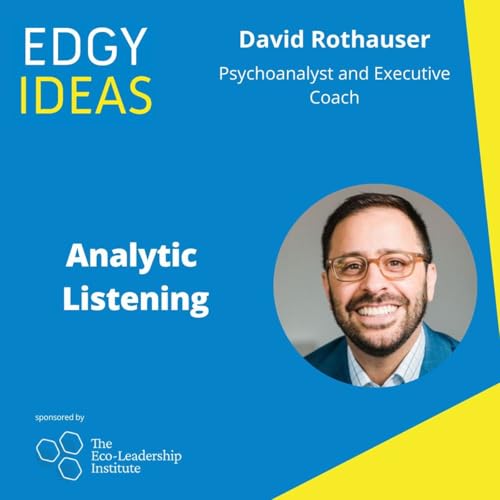
Edgy Ideas
カートのアイテムが多すぎます
ご購入は五十タイトルがカートに入っている場合のみです。
カートに追加できませんでした。
しばらく経ってから再度お試しください。
ウィッシュリストに追加できませんでした。
しばらく経ってから再度お試しください。
ほしい物リストの削除に失敗しました。
しばらく経ってから再度お試しください。
ポッドキャストのフォローに失敗しました
ポッドキャストのフォロー解除に失敗しました
-
ナレーター:
-
著者:
-
Simon Western
このコンテンツについて
This podcast explores our human dynamics in today's networked society. Addressing topical themes, we explore how social change, technology and environmental issues impact on how we live, and who we are - personally and collectively. Edgy Ideas podcast aims to re-insert the human spirit, good faith, ethics and beauty back into the picture, offering new perspectives and psycho-social insights. We pay particular attention to how the ‘unconscious that speaks through us’, entrapping us in repetitive patterns and shaping our desires. Each podcast concludes by contemplating what it means to live a ‘good life’ and create the ‘good society’. Enjoy!
Edgy Ideas is sponsored by the Eco-Leadership Institute
A radical think tank and developmental hub for leaders, coaches and change agents.
Join our community of practice and work live with many of our podcast guests
Discover more here: https://ecoleadershipinstitute.org
Contact simon@ecoleadershipinstitute.org
Simon Western
エピソード
-
 37 分
37 分カートのアイテムが多すぎます
ご購入は五十タイトルがカートに入っている場合のみです。カートに追加できませんでした。
しばらく経ってから再度お試しください。ウィッシュリストに追加できませんでした。
しばらく経ってから再度お試しください。ほしい物リストの削除に失敗しました。
しばらく経ってから再度お試しください。ポッドキャストのフォローに失敗しました
ポッドキャストのフォロー解除に失敗しました
-
 43 分
43 分カートのアイテムが多すぎます
ご購入は五十タイトルがカートに入っている場合のみです。カートに追加できませんでした。
しばらく経ってから再度お試しください。ウィッシュリストに追加できませんでした。
しばらく経ってから再度お試しください。ほしい物リストの削除に失敗しました。
しばらく経ってから再度お試しください。ポッドキャストのフォローに失敗しました
ポッドキャストのフォロー解除に失敗しました
-
 2025/09/0438 分
2025/09/0438 分カートのアイテムが多すぎます
ご購入は五十タイトルがカートに入っている場合のみです。カートに追加できませんでした。
しばらく経ってから再度お試しください。ウィッシュリストに追加できませんでした。
しばらく経ってから再度お試しください。ほしい物リストの削除に失敗しました。
しばらく経ってから再度お試しください。ポッドキャストのフォローに失敗しました
ポッドキャストのフォロー解除に失敗しました
まだレビューはありません


